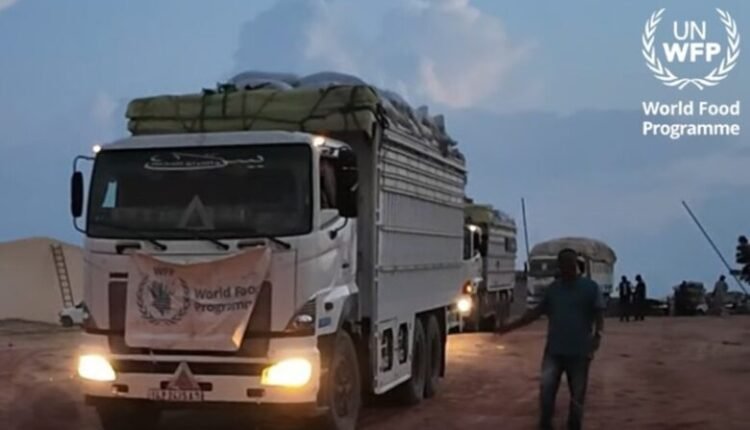The UN Announces the Entry of 38 Humanitarian Aid Trucks through Adre

Sudanhorizon – Agencies
The United Nations announced that 38 humanitarian aid trucks, carrying 1,253 tons of assistance, have crossed into Sudan through the Adré border crossing, which connects the Darfur region in Sudan with eastern Chad. The Sudanese government had previously expressed reservations about opening this crossing, as many other available crossings exist. However, it was reopened ten days ago in the middle of this month.
The UN Office for the Coordination of Humanitarian Affairs (OCHA) reported that since the Sudanese Sovereignty Council announced the reopening of the Adré border crossing with Chad on August 15 to meet vital needs, 38 trucks belonging to UN organisations and agencies have entered Sudan. These trucks were loaded with 1,253 tons of aid, including shelter, food, and other essential supplies for 119,000 people in various areas.
According to the Anadolu Agency, the OCHA statement highlighted that “after more than 16 months of conflict, Sudan is facing a devastating and widespread food disaster, affecting more than half of the population. Thousands more are likely to find themselves in conditions similar to those of the Zamzam camp residents in North Darfur, as 13 other areas are exposed to the same risks.”
The Sudanese government had initially been hesitant to use the Adré border crossing for the entry of aid, as it is located in an area controlled by the Rapid Support Forces (RSF) rebels, fearing it might be used for purposes other than humanitarian, such as transporting weapons to the rebels. Meanwhile, the United Nations had been urging Sudanese authorities to open the crossing to facilitate the entry of humanitarian aid trucks into the Darfur region, especially after heavy rains impeded progress at the Tina border crossing along the same border with Chad. On August 15, Sudan opened the Adré border crossing “for three months to allow the delivery of humanitarian aid to those affected by the war in the country.”
UN agencies also emphasized that access restrictions and severe funding gaps hinder humanitarian workers’ ability to scale up the response to prevent famine. Some UN agencies have repeatedly mentioned that what has been collected barely reaches 20% of the estimated funds needed to cover humanitarian needs.
According to the United Nations, the war since mid-April 2023 has resulted in approximately 18,800 deaths and nearly 10 million displaced persons and refugees.
Shortlink: https://sudanhorizon.com/?p=1251

